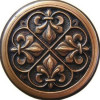Will Bringing Back Tags Help Traffic?
Quite a while ago we used to add our own tags to each hub. For example if we wrote about shoes we would use the tag box for words such as: shoes, trainers, new shoes, fashion shoes. And so on. Reading various articles around the internet I noticed that sometimes when the page hasn't loaded properly we get to see behind the photos/articles and I noticed that the top ones on Google always have tons of tags, more in fact than the actual headline or paragraphs.
So, do you think bringing back our own tags would help?That's a good question, Nell - I'd love to see an answer from the staff. I wonder if they were discontinued due to abuses - such as writers who may have inserted keyword tags unrelated to their hubs?
From my experience with recent Google changes over the past year or so, tags are not needed and will not increase views or bring your site up higher in the search results. Google no longer looks at tags. The tags here were used to find related hubs for your hub. They were for internal use only. Google never saw them.
Google looks specifically at content now, according to the pros....not even meta tags are beneficial. Every word in your articles (or hub) is viewed as a potential keyword by Google.Tags on HubPages were never the same as tags on blogs. They were used purely for creating the topic pages (or tag pages) within HubPages. The tags themselves weren't visible to search engines.
Nell, when HP eliminated the tags option for us, they explained that they would be adding tags to our articles themselves. Apparently they thought many hubbers were inept at adding tags and keywords that would put the articles in a high search engine ranking.
Oh really! They did, did they? Well it hasn't done us much good has it? Thanks for telling us that bravewarrior
This was feature was deliberately retired.
Here are a few reasons (some of which authors have already expressed in this thread).
1. Tags were abused
2. Tags were ineffective when usedThanks for the official response, Matthew - and I confess I am not surprised the tags were abused; we have seen some of the tricks people try to pull on the site.
I'm impressed at number of major improvements to the site in the past year or so. If tags were a problem (for the reasons you mentioned), then it's good that they've been discontinued.
They could put in a limit to the number of tags say 8-10. I would like to use them.
Amazon had this problem awhile back with their own Panda issues ... of course, published authors were flooding to the forums, moaning, groaning and scratching their heads as to why their traffic and sales were down, some even threatened to leave Amazon. It all comes back ... just be patient folks
If I remember correctly, the tags HP used were for internal use only, as they could not be seen when signed out of HP.
They were more to do with attracting similar hubs in the 'related hubs' than signals to the search engines.I hated it when we lost the ability to post our own tags. I didn't know what you just told us Izzy. I guess it wasn't as big a deal as I had imagined it to be. I would still like to hear a reply from HubPages staff though.
Back in the day, utislising tag pages really helped with rankings - they were part of the strength and genius of HP's internal linking system. Google indexed "tag pages" and many of the main ones had high PR 4/5, so if your hubs got on one of those pages it offered a great link (much like getting your hub at the top of a main topic page now). If you were smart you could get lots of high PR links simply by carefully choosing the right tags.
Doubt very much that HP will ever bring these old style tags back now though.
This is one of the core feature removals that altered my position on whether to continue writing hubs on Hub Pages. I see it as a vote loser all the way. WordPress bloggers... hell, any bloggers out there can still add the tags to articles in blogs as needed. Hubs are less equal as it seems hubbers are somehow less trusted. The "Why" behind this is a source of controversy.
Keywords have monetary value. Hub Pages is a business. Adsense is a business that makes money. Taking away tags... h'mmm. No sorry, I just never got this tag removal thing.
All I know is that it hurts EVERYONE in the end.I found out a long time ago that anyone who writes a hub over 4,000 words is better off making it into a downloadable object such as a PDF or downloadable document equivalent. And once you start that, just keep on going. It is a lot better than leaving it hanging or dangling on a vine.
Why spend valuable time and energy on trying to keep this thing propped up? One has to ask what is in it for us? I go where the sunniest places are, more sustenance and nourishment that way. If a thousand other places offer something that is not offered here...I think most of us believed the tags were used on the outside of HP and helped promote our hubs. Interesting to know they were only internal. Since that's the case I guess we don't need them as titles and hubbers lead us to what we read.
I imagine they got pulled partly for the same reason amazon pulled tags, because people mis-used them by putting in irrelevant SEO-bait.
Good question. This has certainly been an education for me. I feel kind of bare without them, like I forgot my lipstick or cell phone.
I agree about people wanting tags brought back. They can be freely added to any blog now. Today Google made an announcement and it will affect all hubbers who, like me - write long-form hubs or articles. Google has now added In Depth Articles to their search results as of today. Long-form writing and written articles or hubs will naturally benefit. If you have written long wordy articles on special subjects, which are obviously sought after and searched for by the browsing public enquirers out there, then you are in luck.
It will appear most often for broad topics and themes. See the link for more examples of what will work. Tags can be damned if this gets the go ahead as this could positively affect hubs that tend to be long. And this might encourage those writers of short hubs to lengthen them somewhat.
I suggest you all read the article from Search Engine Land as it gives graphical examples of what they mean and also confirm where the articles will be displayed on results pages. (P.S. thank you Astra Nomik - aka Cathy Nerujen for spotting this on your Twitter, you clever girl.)
Here is the article.
http://searchengineland.com/google-intr … lts-168909I can't help wondering why my title tuner wants me to add the word castor oil on a completely unrelated hub about butterflies and dragonflies. Think there must be some kind of 'bug' in the system. Is that because the one about castor oil is getting a fair bit of traffic!
Related Discussions
- 49
Does hubscore influence traffic?
by Susannah Birch 15 years ago
I thought I knew the answer to this question. But something interesting happened in the last week which I found it hard to explain. I'd be interested to hear opinions.I have a hub which is nine months old and had just reached 250-300 hits per day.I was experimenting to see how many tags I could use...
- 361
I really think this Idled hubs idea is ridiculous
by Steve Andrews 13 years ago
When it was first introduced I was annoyed by it but made an effort to tweak my hubs to get them out of Idle status. Now, a whole load have got zzs against them again and many of them are hubs that at one point were very successful and even now still have scores above 70 or higher.One of the hubs...
- 168
HubPages earnings
by ShailaSheshadri 14 months ago
I am writing articles for this website since past 3 months. At present, I have 38 featured and published hubs. I have joined for Amazon and google Adsense program. Past two months I earned like very less amount, less than 1/2 dollar. If I continue writing and publishing at the rate of one article...
- 53
I've seen a huge increase in traffic......
by ryankett 16 years ago
And indeed my hub rating, after doing something with my hubs.It may seem like stating the obvious, but I went through all of hubs and put the absolute maximum number of tags that I could before it said "you have too many tags" or whatever it says. When it said that I had too many tags I...
- 120
How Does Idling of Good Quality Pages with Low Traffic Benefit HP?
by topclass 12 years ago
Many good quality pages are Idled (become unfeatured) via ‘Analysis of the how engaged readers are with a Hub over an extended period of time’ – essentially because they get low traffic.It appears that this process was initiated to reduce the number of ‘low quality’ pages on the site. The concept...
- 40
Traffic at zero. All my Gogle page rank 1 hubs dropped dramatically
by Ness 13 years ago
I used to get in the hundreds daily for traffic, now in the last week I have been getting a mere handful. Today is at 5, one day last week was less! Thats overall traffic for all my hubs Ive checked my Google page 1 hubs and they are no longer page 1. I couldnt even find them up to page 5 (didnt...























